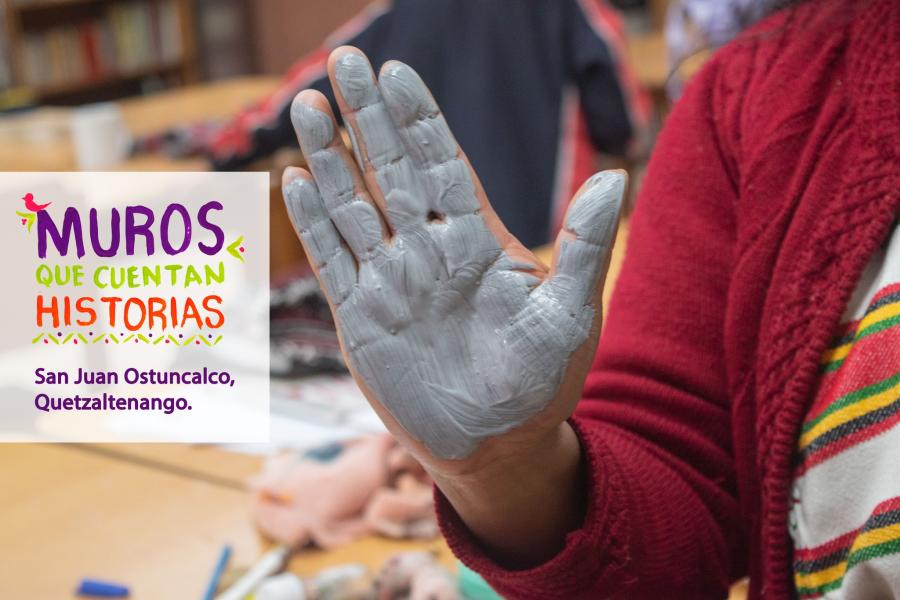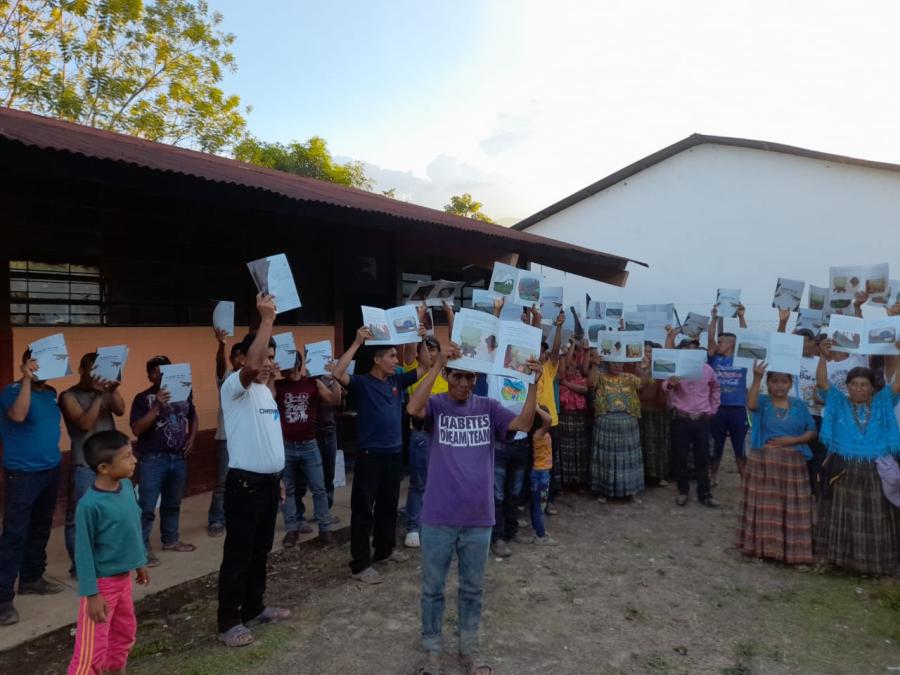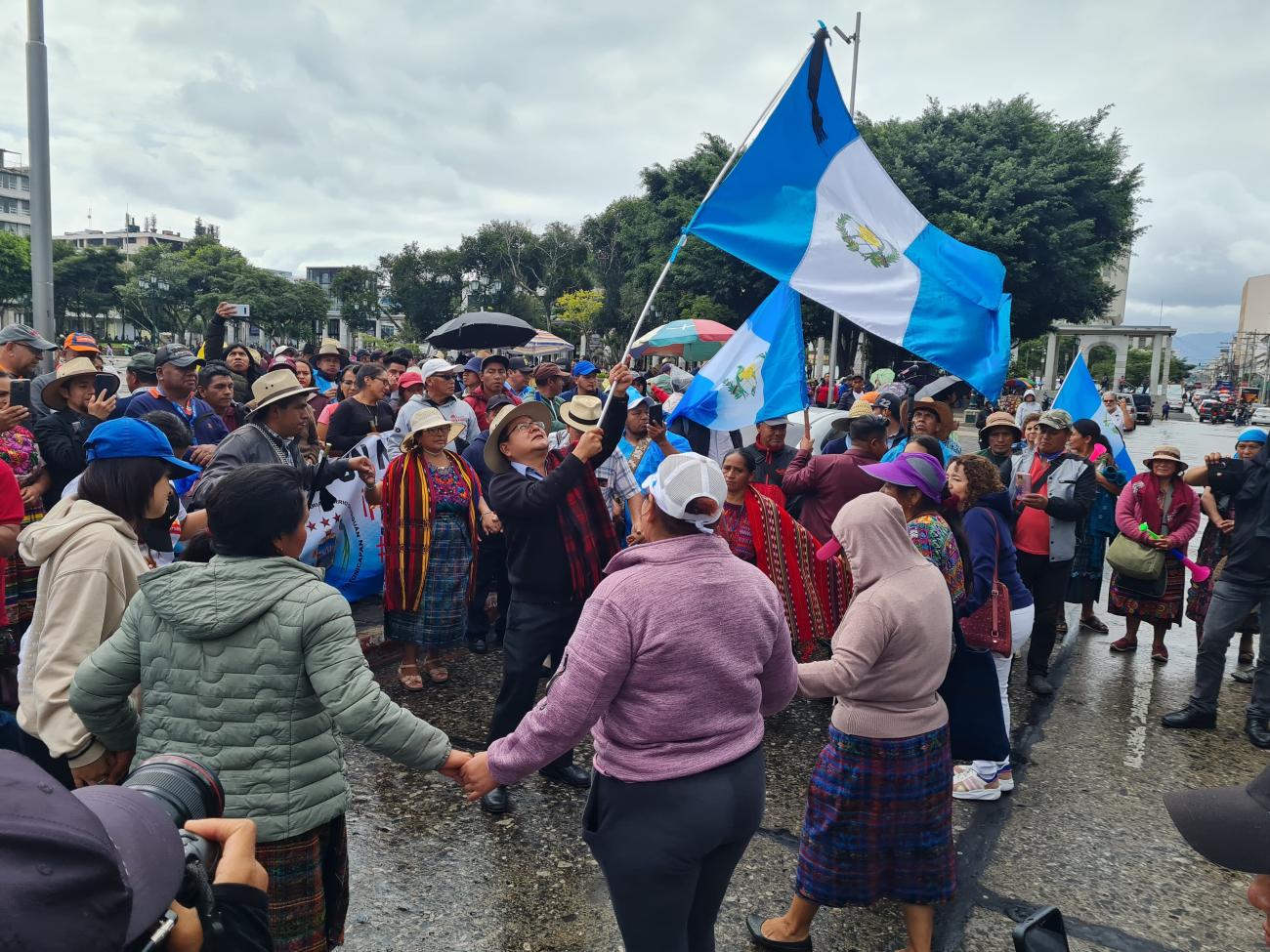
The recent attack on April 23, 2025, on ancestral Indigenous institutions in Guatemala through the criminalization of two of their former leaders is illegal and contrary to national and international law. Cultural Survival demands respect for ancestral Indigenous mayoral offices and the immediate release of those detained.
As an organization whose mission is to defend the rights of Indigenous Peoples, Cultural Survival supports communities' self-determination, cultures, livelihoods, and political resilience. Cultural Survival strongly denounces the attack by the Corrupt Pact in Guatemala, carried out by the Public Prosecutor's Office, against ancestral K'iche' Indigenous institutions through the arbitrary detention of two of its former leaders, Luis Pacheco (K'iche') and Héctor Chaclán (K'iche'), on terrorism charges for having participated in 106 days of peaceful pro-democracy protests in Guatemala. The arrest of these comrades violates fundamental rights enshrined in both the Guatemalan Constitution and the United Nations Declaration on the Rights of Indigenous Peoples, signed and endorsed by Guatemala.
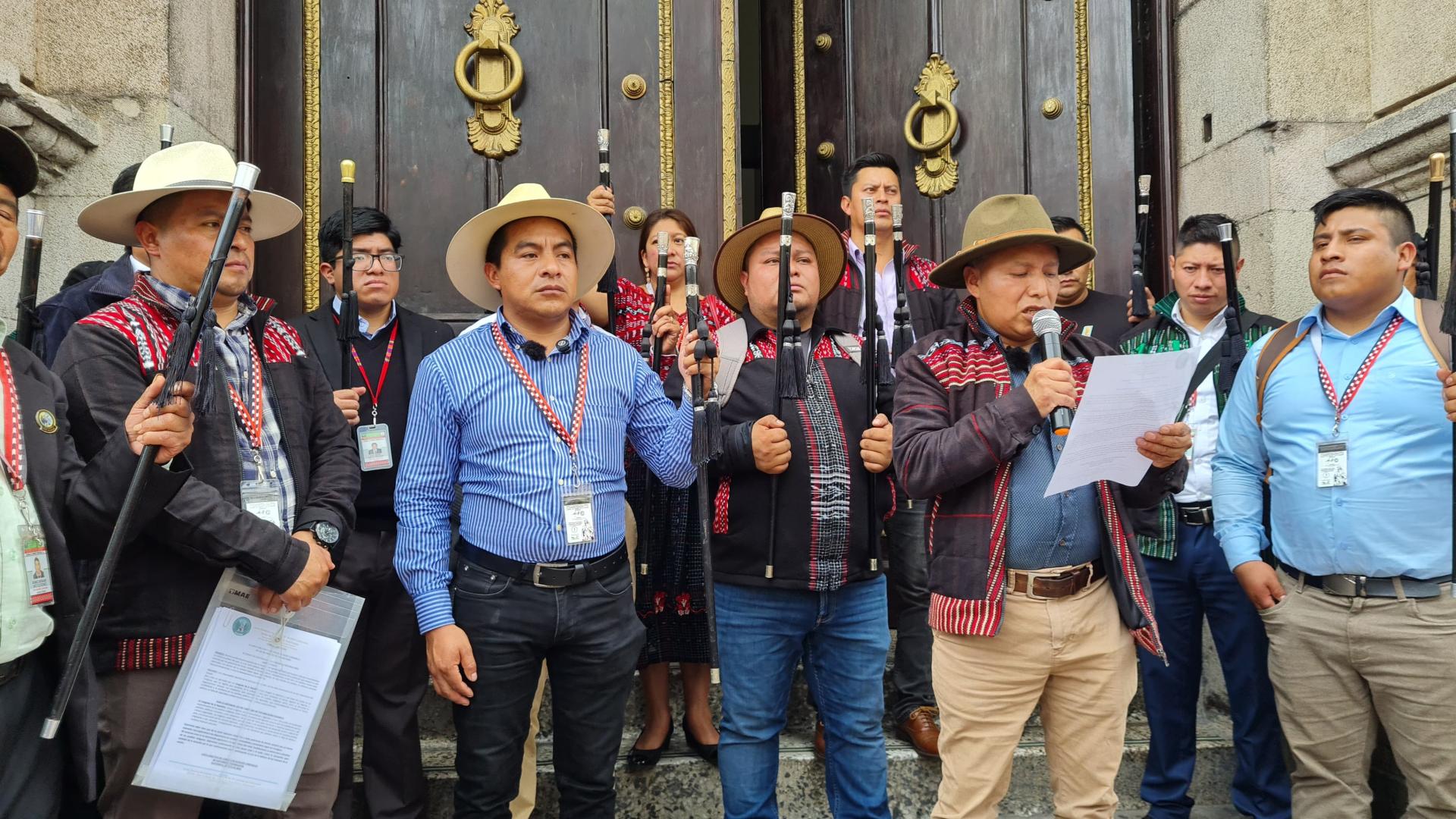
Reasons for the criminalization of Indigenous activists
The criminalization of the two activists and leaders from the 48 Cantons of Totonicapán demonstrates a strategy aimed at undermining ancestral Indigenous institutions, which constitute one of the backbones of Guatemalan citizen resistance against corruption and impunity. It also shows the deliberate intention of the Public Prosecutor's Office to threaten human rights defenders and to dissuade and weaken social movements and society in general so that they do not mobilize against corruption and impunity.
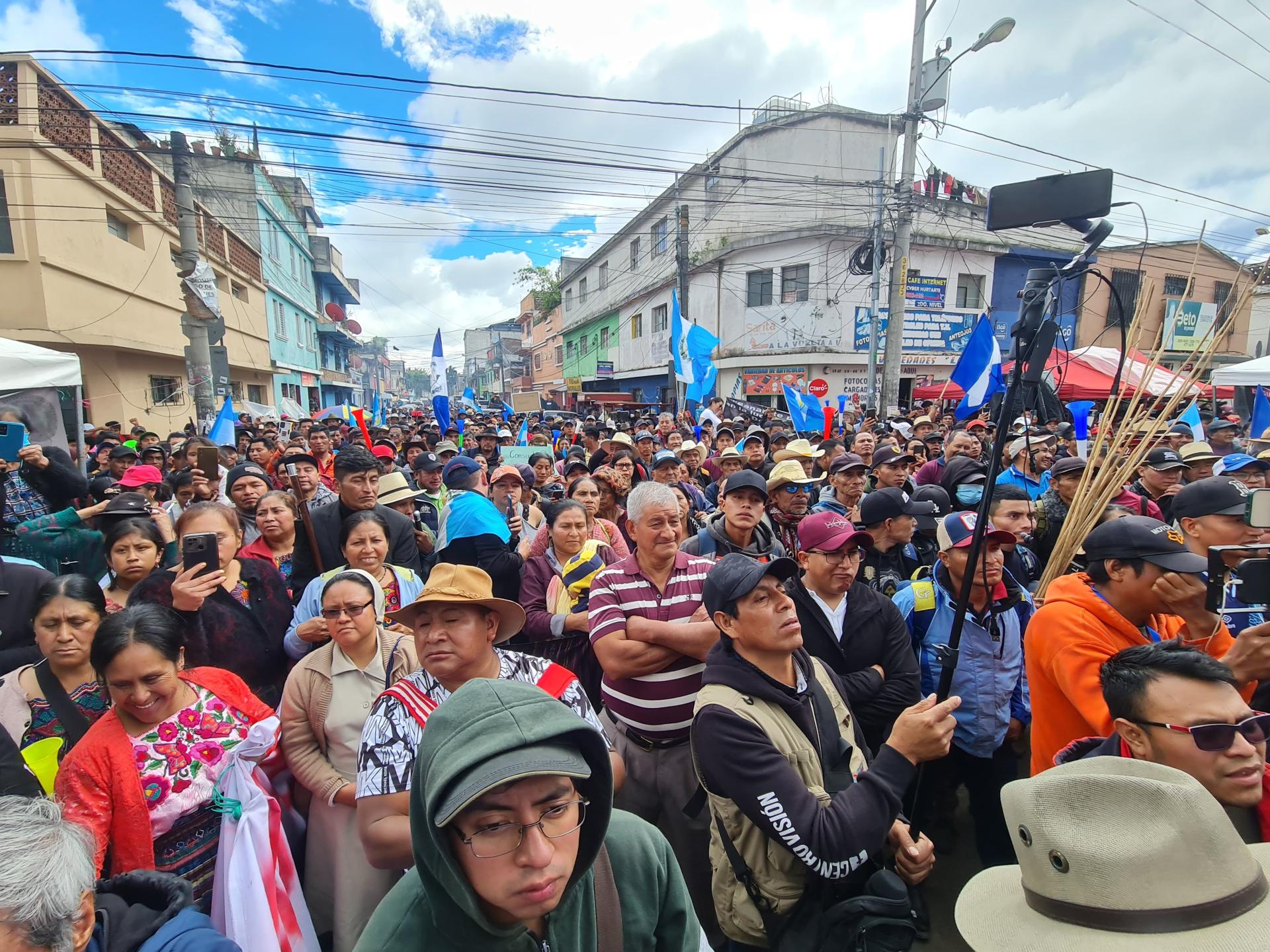
The illegality of criminalization
The Guatemalan Constitution guarantees freedom of expression through the free expression of thought in Article 35. Article 45 recognizes the right to resistance: "Resistance by the people for the protection and defense of the rights and guarantees enshrined in the Constitution is legitimate." Likewise, the International Covenant on Civil and Political Rights guarantees the right to peaceful assembly in Article 21, which Guatemala ratified.
In several 2015 reports by the Inter-American Commission on Human Rights (IACHR) on the criminalization of social protest, and by the UN Special Rapporteur on Freedom of Expression in 2018, both have communicated that social mobilizations and demonstrations in public spaces or on public roads are carried out within the framework of the right to freedom of expression and the right to assembly.
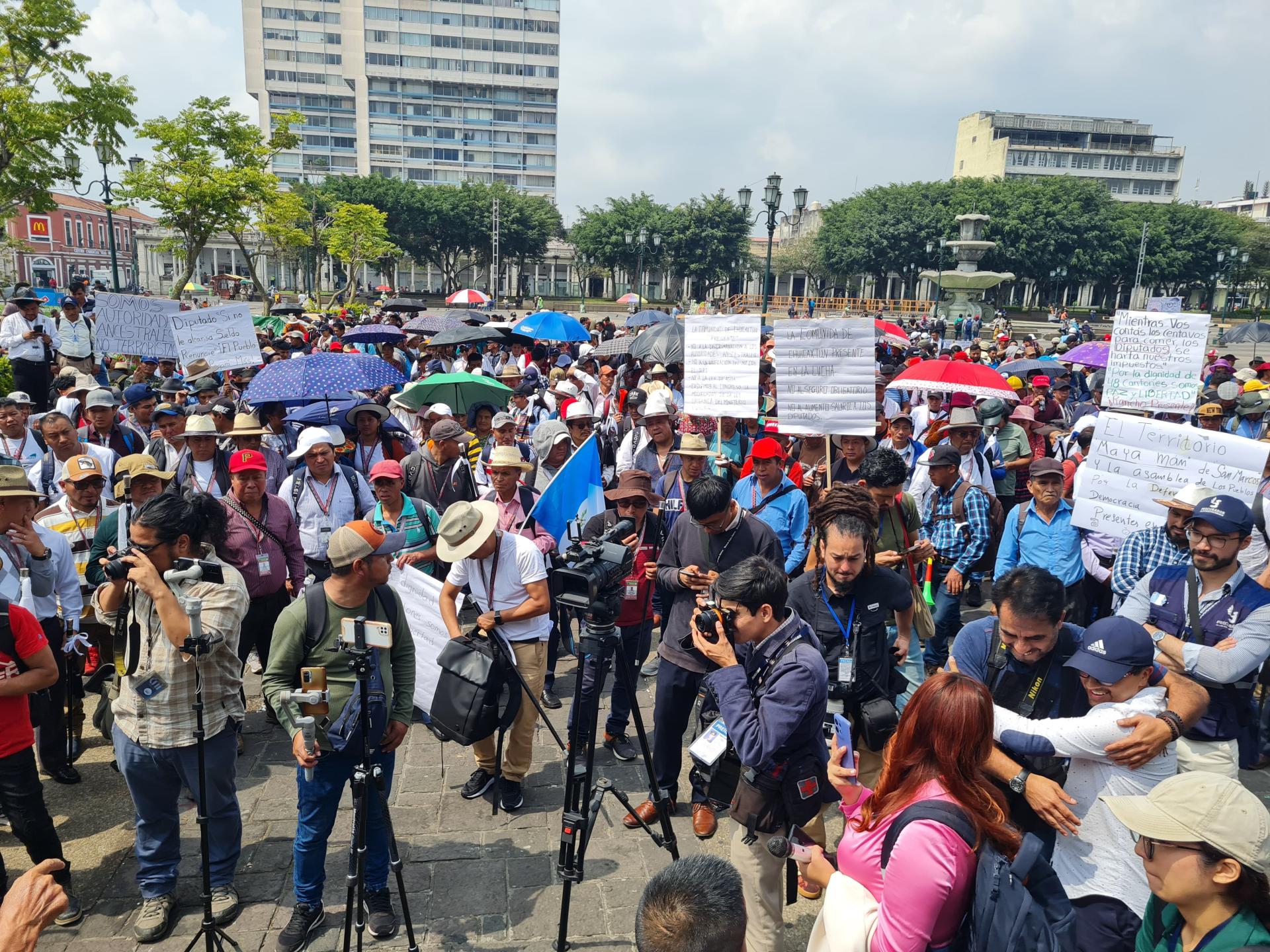
The detention of both K'iche' activists not only violates the Constitution and the United Nations Declaration on the Rights of Indigenous Peoples, endorsed by Guatemala, but also reflects a stance against social movements. It is also a practice of discrimination and selective persecution against Indigenous leaders and the Indigenous Peoples of Guatemala in general. Cultural Survival joins the demands for the immediate release of Luis Pacheco and Héctor Chaclán and an end to the criminalization of all organizations that defend the dignity and human rights of the Mayan Peoples and all Guatemalans.
We trust that national and international pressure will lead to the dismissal of the charges and that the struggle of these leaders, the Indigenous Mayors' Offices, and other legitimate forms of ancestral Indigenous government and organization will continue to symbolize legitimate resistance. Justice should not criminalize exercising the right to protest, as it is an inalienable right of all citizens in all democracies, regardless of ethnic origin.
Photos by Radio La Niña, Totonicapán.
More information:
